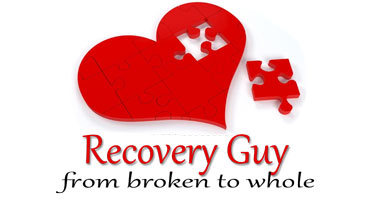
For most of us, recovery brings more positive than negative aspects. As we walk the journey, things begin to improve and as we continue, they begin to stockpile and affect other aspects automatically. Every now and then certain things, although low in number, can produce a slowing of recovery or major distraction. Having said that, one of the most challenging things a person in recovery does is overcome depression. First of all, most of us don’t know how to identify depression. Unless we are seeing a clinical professional, the likelihood is we have never been diagnosed with this debilitating condition. Depression comes in many shapes and sizes and from varying sources. There are many variables when it comes to these sources, but what is universal is what depression does to us. One might think it strange that a person coming out of a life-threatening addiction or behavior could be depressed. Some may think there is nothing to be depressed over. That which was likely going to kill us has been removed. What so many of us don’t understand is that it wasn’t the substance that caused the depression. The substances or behaviors were a response to the depression. Because this is true for most of us, once we get clean and sober our real work is just beginning. We must now get to the foundational causes of the depression so we don’t return to the escape from it.
BRC Recovery has some interesting research regarding depression in recovery and I have added some common indicators and the link to their site. https://www.brcrecovery.com/overcoming-depression-addiction-recovery/
indications of depression may include
- Low mood
- Feelings of worthlessness, helplessness, or pessimism
- Sleep problems (insomnia or hypersomnia)
- Chronic fatigue (lacking energy even after sleeping)
- Social isolation
- Anhedonia (diminished pleasure from previously enjoyable activities)
- Appetite disturbance (eating too much or not enough)
- Difficulty concentrating
- Feelings of guilt or shame
- Intrusive, repeating thoughts of death or suicide
You may be able to relate to one or more of these. I know I did. Having been clinically diagnosed with obsessive-compulsive disorder in 1983, I understand there are often mental and psychological conditions that contribute to our addiction if they are not the sole cause for it.
Having said that, knowing the cause of something doesn’t mean we don’t have it. Knowing the condition or the cause gives us a direction to work in to remove it.
Once we have addressed and overcome the depression we should continue to the tools that got us to our healthy position. We should safeguard ourselves from returning to that negative mindset by self-monitoring.
The best way to combat depression is to live a life filled with a sense of gratitude. It is rare to find a person who is grateful for life, as life comes, to be depressed. I suggest the following to help monitor our condition. The only thing worse than being in a depressed state is returning there once one is healed.
- Have a daily regimen of positive self-talk
- Focus on the things of life that bring us joy
- Recognize and process challenges as they occur
- Surround yourself with like-minded people
- Create and focus on a gratitude list daily
- Resume or find a hobby that bring enjoyment
- Develop a spiritual understanding of self
- We are NOT the mistakes we make
- Share our freedom and joy with those around us
- End each day thankful for what’s been given
Practicing these things will help move us from being depressed and the emotional bondage it creates. The depression will be pushed out and replaced with the joy that true freedom brings.
